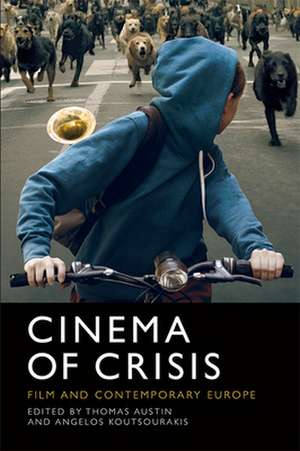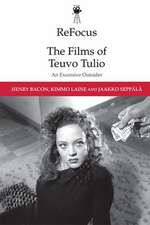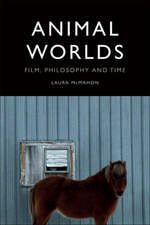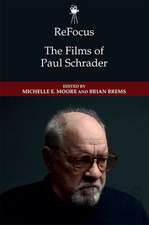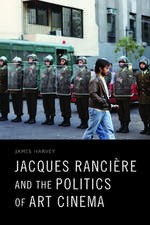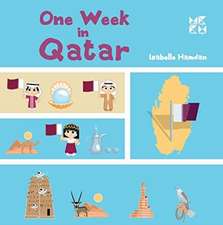Cinema of Crisis
Editat de Thomas Austin, Angelos Koutsourakisen Limba Engleză Paperback – 30 mai 2022
| Toate formatele și edițiile | Preț | Express |
|---|---|---|
| Paperback (1) | 174.69 lei 3-5 săpt. | |
| EDINBURGH UNIVERSITY PRESS – 30 mai 2022 | 174.69 lei 3-5 săpt. | |
| Hardback (1) | 585.50 lei 3-5 săpt. | |
| EDINBURGH UNIVERSITY PRESS – 22 iul 2020 | 585.50 lei 3-5 săpt. |
Preț: 174.69 lei
Preț vechi: 194.46 lei
-10% Nou
Puncte Express: 262
Preț estimativ în valută:
33.43€ • 34.86$ • 27.78£
33.43€ • 34.86$ • 27.78£
Carte disponibilă
Livrare economică 27 februarie-13 martie
Preluare comenzi: 021 569.72.76
Specificații
ISBN-13: 9781474448512
ISBN-10: 1474448518
Pagini: 328
Dimensiuni: 153 x 231 x 18 mm
Greutate: 0.46 kg
Editura: EDINBURGH UNIVERSITY PRESS
ISBN-10: 1474448518
Pagini: 328
Dimensiuni: 153 x 231 x 18 mm
Greutate: 0.46 kg
Editura: EDINBURGH UNIVERSITY PRESS
Notă biografică
Thomas Austin is Professor of Film Studies at the University of Sussex, UK.
Angelos Koutsourakis is an Associate Professor in Film and Cultural Studies at the Centre for World Cinemas and Digital Cultures, University of Leeds. He is the author of Rethinking Brechtian Film Theory and Cinema (2018), Politics as Form in Lars von Trier (2013) and the co-editor of The Cinema of Theo Angelopoulos (2015) and Cinema of Crisis: Film and Contemporary Europe (2020).
Angelos Koutsourakis is an Associate Professor in Film and Cultural Studies at the Centre for World Cinemas and Digital Cultures, University of Leeds. He is the author of Rethinking Brechtian Film Theory and Cinema (2018), Politics as Form in Lars von Trier (2013) and the co-editor of The Cinema of Theo Angelopoulos (2015) and Cinema of Crisis: Film and Contemporary Europe (2020).
Descriere
Descriere de la o altă ediție sau format:
This collection explores the politics and aesthetics of filmmaking across Europe in flux. It brings together scholars from Spain to Estonia, Hungary to Britain, in order to trace European filmmakers' diverse responses to the interlinked upheavals and emergencies of the past three decades.
This collection explores the politics and aesthetics of filmmaking across Europe in flux. It brings together scholars from Spain to Estonia, Hungary to Britain, in order to trace European filmmakers' diverse responses to the interlinked upheavals and emergencies of the past three decades.
